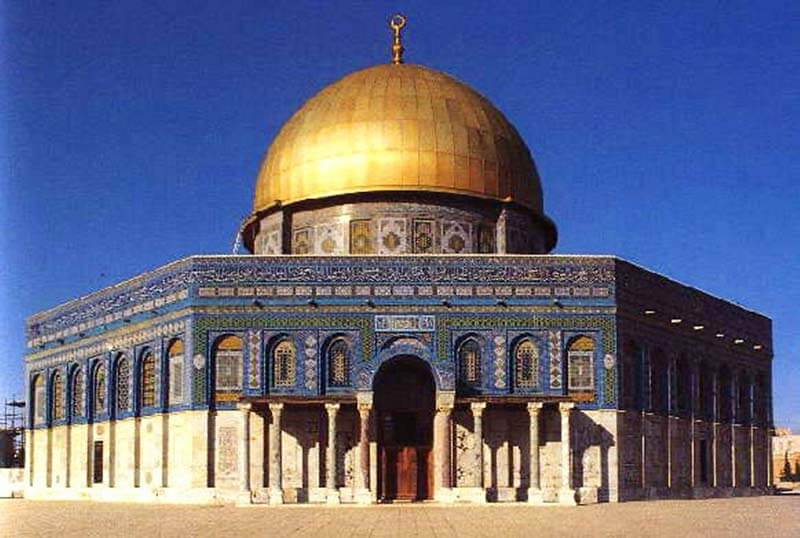Who are the prophets of Islam?

Islam teaches that God sent prophets to humanity, at different times and places, to communicate his message. Since the beginning of time, God has sent His guidance through these chosen people. They were human beings who taught people around them faith in the one Almighty God and how to walk the path of justice. Some prophets also revealed the Word of God through revelation books.
The message of the prophets
Muslims believe that all the prophets gave directions and instructions to their people on how to properly worship God and live their lives. Since God is One, His message has been the same over time. In essence, all the prophets taught the message of Islam: to find peace in your life through submission to the One Almighty Creator; believe in God and follow his guidance.
The Koran on the prophets
“The Messenger believes in what has been revealed to him by his Lord, as well as men of faith. Each of them believes in God, in his angels, in his books and in his messengers. They say: 'We make no distinction between and another of his messengers. " And they say: “We hear and obey. We seek your forgiveness, our Lord, and for you it is the end of all journeys ”. (2: 285)
The names of the prophets
There are 25 prophets mentioned by name in the Qur'an, although Muslims believe that there were many more in different times and places. Among the prophets that Muslims honor are:
Adam or Aadam was the first human being, the father of the human race and the first Muslim. As in the Bible, Adam and his wife Eve (Hawa) were driven out of the Garden of Eden for eating the fruit of a certain tree.
Idris (Enoch) was the third prophet after Adam and his son Seth and identified as the Enoch of the Bible. It was dedicated to the study of the ancient books of its ancestors.
Nuh (Noah), was a man who lived among unbelievers and was called to share the message of the existence of only one god, Allah. After many unsuccessful years of preaching, Allah warned Nuh of the impending destruction and Nuh built an ark to save pairs of animals.
Hud was sent to preach to the Arab descendants of Nuh called 'Ad, desert traders who had not yet embraced monotheism. They were destroyed by a sandstorm for ignoring Hud's warnings.
Saleh, about 200 years after Hud, was sent to the Thames, which was descended from the announcement. The Thamud asked Saleh to perform a miracle to prove his connection with Allah: to produce a camel from the rocks. After doing so, a group of unbelievers planned to kill his camel and were destroyed by an earthquake or volcano.
Ibrahim (Abraham) is the same man as Abraham in the Bible, widely honored and revered as a teacher, father and grandfather for other prophets. Muhammad was one of his descendants.
Ishmail (Ishmael) is the son of Ibrahim, born of Hagar and ancestor of Muhammad. He and his mother were brought to Mecca by Ibrahim.
Ishaq (Isaac) is also the son of Abraham in the Bible and in the Koran, and both he and his brother Ismail continued to preach after Ibrahim's death.
Lut (Lot) belonged to the family of Ibrahim, who was sent to Canaan as a prophet in the condemned cities of Sodom and Gomorrah.
Ya'qub (Jacob), also of the Ibrahim family, was the father of the 12 tribes of Israel
Yousef (Joseph), was the eleventh and most beloved son of Ya'qub, whose brothers threw him into a well where he was saved by a passing caravan.
Shu'aib, sometimes associated with the biblical Jethro, was a prophet sent to the Midianite community who worshiped a sacred tree. When they did not want to listen to Shuaib, Allah destroyed the community.
Ayyub (Job), like his parallel in the Bible, suffered long and was severely tested by Allah, but remained true to his faith.
Musa (Moses), raised in the royal courts of Egypt and sent by Allah to preach monotheism to the Egyptians, was given the revelation of the Torah (called Tawrat in Arabic).
Harun (Aaron) was Musa's brother, who remained with their relatives in the Land of Goshen, and was the first high priest of the Israelites.
Dhu'l-kifl (Ezekiel), or Zul-Kifl, was a prophet who lived in Iraq; sometimes associated with Joshua, Obadiah or Isaiah rather than Ezekiel.
Dawud (David), king of Israel, received the divine revelation of the Psalms.
Sulaiman (Solomon), son of Dawud, had the ability to speak with animals and rule the djin; he was the third king of the Jewish people and considered the greatest ruler in the world.
Ilia (Elia or Elia), also spelled Ilyas, lived in the northern kingdom of Israel and defended Allah as the true religion against the faithful of Baal.
Al-Yasa (Elisha) is typically identified with Elisha, although the stories in the Bible are not repeated in the Qur'an.
Yunus (Jonah), was swallowed by a large fish and repented and glorified Allah.
Zakariyya (Zechariah) was the father of John the Baptist, the guardian of the mother of Isa and the righteous priest who lost his life by his faith.
Yahya (John the Baptist) witnessed the word of Allah, which would have announced the arrival of Isa.
'Isa (Jesus) is considered a messenger of truth in the Qur'an who preached the right way.
Muhammad, the father of the Islamic empire, was called as a prophet at the age of 40, in 610 AD
Honor the prophets
Muslims read, learn and respect all prophets. Many Muslims call their children like them. Furthermore, when a Muslim mentions the name of any of God's prophets, he adds these words of blessing and respect: "peace be upon him" (alaihi salaam in Arabic).